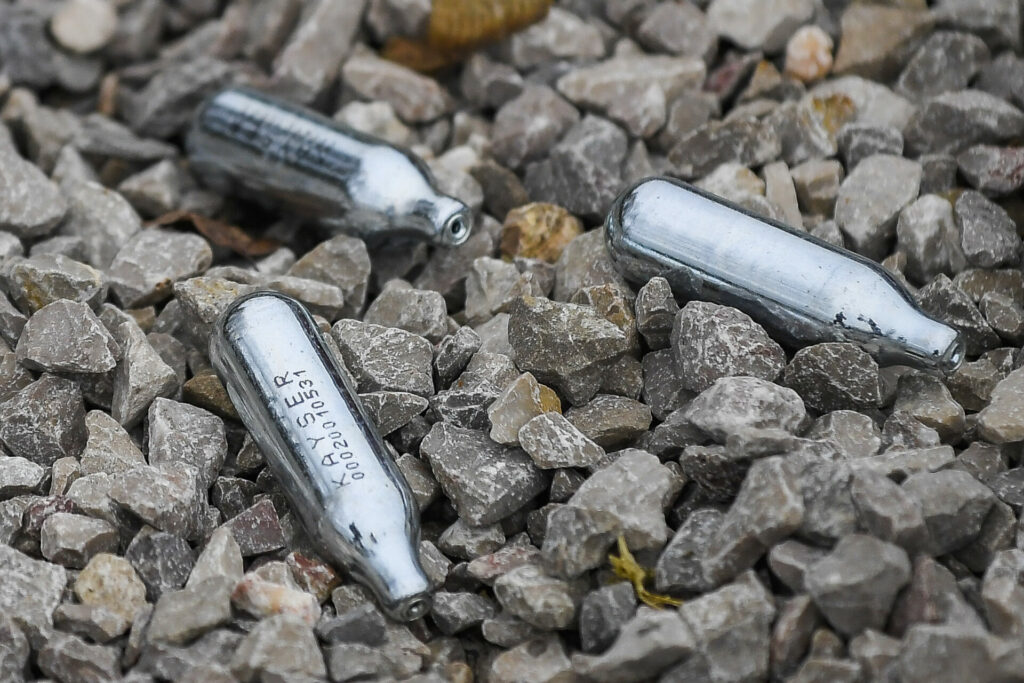In the first three weeks of January, street sweepers in Brussels collected nearly 2 tonnes of nitrous oxide cartridges. The distinctive silver capsules have become a familiar sight around the city and more occasionally, the larger dispensers that release the gas (intended for culinary purposes such as whipping cream).
Both the capsules and related paraphernalia cause explosions in incinerators, De Standaard reports. Waste company Bruxelles-Propreté, which deals with waste collection and processing in the capital, has noticed a clear link between the increasing number of nitrous oxide cartridges and increased drug use.
"We largely find them near clubs and bars," explained spokesperson Camilla Pilotto. More concerning are the larger "supersize" tubes that can be used instead of individual capsules. Whilst a single capsule fills one balloon, the tubes can fill many more.
The 500-gram tubes that end up in the residual waste have caused the three incinerators in Brussels to stop due to explosions. When the cylinders are not completely empty, the heat in the furnaces causes explosions – at times dangerous. It takes around 48 hours to repair each incinerator after each explosion.
Flanders has also seen the problem growing, according to the Association of Flemish Cities and Municipalities.
Related News
- Laughing gas: Nitrous oxide poisoning cases on the rise in Europe
- Belgium considers full ban on laughing gas
While it is illegal for minors to buy nitrous oxide in shops in Belgium, finding websites which sell nitrous oxide cylinders is not difficult. According to De Standaard, a six-pack of nitrous oxide of 580 grams per bottle costs €170 online.
In Brussels, the situation is currently stable. Some measures have been introduced to limit the damage and waste is checked before being incinerated. However, this is labour-intensive and it isn't possible to sift through all refuse.
Bruxelles-Propreté is looking for "structural solutions to tackle the problem in the long term."

